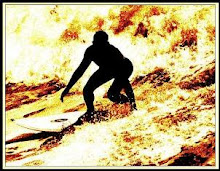I'm sure other people can relate to this entry. It is about the story of the father and son who got hit by a train and the surgeon who could not operate on the son. (pg. 61). The story made me think a lot. I was trying to make sense of the story and the relationship between the surgeon and the boy. I kept on thinking, how could the boy be the surgeons child when the father just died? After thinking and not reading ahead, I was still confused and thought that the surgeon might be an in-law or step parent. I could have been right but the idea of the surgeon being his mom never crossed my mind. I read that and felt like an idiot, I mean who doesn't remember about moms?
This story and what I had to think about really woke me up and I started to think of how certain names and languages can have this effect to make you think that it is only one gender. In this exercise, I did not think the surgeon to be female, even though I am a female myself. Maybe it is because of labels or stereotypes in today's society? Yet by reading this story, I definitely gained more awareness to how stereotypes can effect you
unconsciously even if you never
consciously stereotype.


